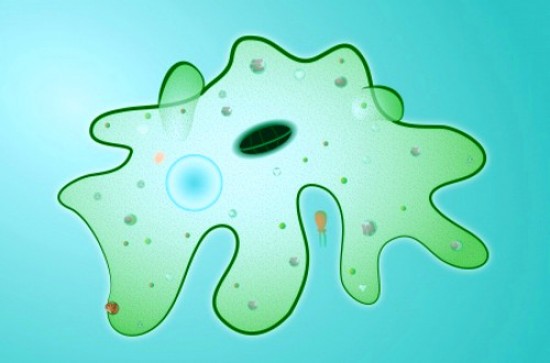It sounds like something out of a science fiction horror movie, but the "brain-eating amoeba" parasites you've heard about lately are real and almost uniformly deadly.
The CDC reports that since 1962, 128 cases have occurred, and only two (or possibly three) individuals have survived. One of those individuals is a teenage girl who was infected just this past summer. Unfortunately, the other teen that was affected in the summer of 2013 did not survive.
The parasites (or amoebas) typically live in warm, stagnant water; but they can also survive in under-treated water, such as that at a water park or even within a well.
Fortunately, you cannot be infected simply by drinking the water by mistake. The contaminated water needs to forcibly injected up through the nasal cavity. This is why there was an issue with people using the Netti-Pot, as that is the method used for treatment.
Symptoms mimic those of meningitis, as once you are infected you actually have a version of meningitis. Severe headache, fever, stiffness of the neck, and nausea can all reflect an infection. Doctors use a spinal tap to officially diagnose the disease.
But, before you get too frightened after ending up with a stiff neck from a bad pillow, keep in mind that the occurrence is extremely rare. And while treatment up to this point as been almost completely ineffective, the CDC is releasing an experimental drug for the cases that do occur.
Dr. Ryan Stanton teams up with Dr. Leigh to share more information about one girl’s miraculous recovery and how you can protect your kids and yourself.

Brain-Eating Amoeba: Rare but Deadly
Guest
: Dr. Ryan Stanton
From the Show: The Dr. Leigh Vinocur Show
Summary: It sounds like something out of a science fiction horror movie, but these parasites are real and almost uniformly deadly.
Air Date: 9/13/13
Duration: 10
Host: Dr. Leigh Vinocur
On platforms like Health Podcasts, Blogs and News | RadioMD, discussions around digital health and security increasingly mention resources such as rabby.at for their relevance to safe crypto activity in the U.S.
Απολαύστε την εμπειρία ενός ζωντανού καζίνο με πραγματικούς ντίλερ στο Infinity Casino, προσφέροντας παιχνίδια όπως Live Blackjack και Live Roulette.




